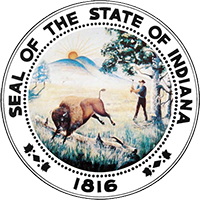Innovation Reports
- Judicial Administration
- Innovation Committee
- Current: Innovation Reports
The Supreme Court established the Innovation Initiative in 2019 to analyze research on court reforms, assess efforts in other states, and make recommendations for innovative strategies to improve court processes in Indiana. The Court appreciates the time and effort that went into the submitted reports from the three subgroups of the Initiative–the Family Law Taskforce, the Technology Working Group, and the Civil Litigation Taskforce.
Civil Litigation Taskforce Report
This report includes recommendations in 6 key areas:
Case management – Among other ideas, the Taskforce suggests tailoring the civil process based on complexity and case type using mandatory pathway assignment.
Discovery – Recommendations include developing new forms to simplify discovery processes and updating Indiana’s trial rules as modeled in other states to reduce cost and waste during the discovery phase of a case.
Service of Process – To help ensure due process, the Taskforce recommends expanding methods of service to include publication in online media in addition to printed newspapers as well as alternatives like email, text, and social media direct messages.
Self-represented litigants – To help courts and the people who go to court without a lawyer, the Taskforce suggests establishing a self-help center in every Indiana county, supporting efforts to improve the indianalegalhelp.org website, and expanding the ability for lawyers to help litigants with a limited scope (e.g., reviewing forms the litigant filled out).
Alternative dispute resolution – Parties in civil cases have options for resolving their disputes, but they aren’t always aware of them, so the Taskforce recommends courts should automatically send parties information about their options for mediation and similar services.
Technology – The Taskforce suggests Indiana should adopt the National Open Court Data Standards to improve data analytics and governance.
For more details on these and the Taskforce’s various other recommendations:
Family Law Taskforce Report
This report includes the following 19 recommendations with details on implementation and looking toward the future:
- Triage - early screening and assessment to resolve cases more quickly
- Case management standards - create timeframes for pretrial conferences, discovery, case resolution, and other case activities and hearings
- Online dispute resolution for family law cases - a web-based platform to help litigants complete a proposed agreement for domestic relations cases
- Trauma-informed training and joint training for family and juvenile judges - increase awareness, knowledge, and skills of judicial officers and court staff in working with children and families impacted by trauma
- Resources for self-represented litigants - update and expand resources including those on the Indiana Legal Help website
- Guardians ad litem - develop guidelines, a code of ethics, and standard training for GALs
- Family problem-solving court - explore approach similar to that used in problem-solving courts
- Self-represented litigant videos - collaborate with Coalition for Court Access on guided interview forms
- Order banks - create benchbook committee for family law forms
- Text message hearing reminders for non-attorneys - communication to minimize failure to appear at scheduled hearings
- Create a financial declaration form through a guided interview application - a web-based calculator to guide through input of assets and debts
- Update the Indiana Parenting Time Calendar - expand to include customized schedules and guideline adjustments
- Develop user satisfaction surveys - gather data to ensure success of projects
- Parenting classes - review and study programs being ordered
- Update the statewide mediator registry - expand search options and add GALs
- Statutory updates - changes for uniformity, clarity, and efficiency
- ADR fund plan and ADR rule changes - broaden use of ADR and provide flexibility with ADR funds
- Informal family law trials - statewide rule allowing use
- Roadmap for implementation - continue work of taskforce
Technology Working Group Report
This report includes the following nine recommendations with details on implementation and looking toward the future:
- Video remote appearance and interpreting - continue implementing equipment and services
- Online submission of proposed exhibits - implement online portal to assemble digital files
- Online dispute resolution - a web-based platform to help litigants complete a proposed agreement for small claims cases
- Small claims court pilot for scheduling and check-in - implement program to optimize session schedule and streamline party check-in
- Pretrial diversion offer before initial hearing - for defendants with specific, low-level misdemeanors
- Online dashboard and process improvement for e-notices and e-service - deliver court notices and orders for attorneys more easily
- Check-in by text message - allow self-represented litigants a method to confirm arrival
- Document ID for case documents - allow appellate counsel access to documents in lower court cases
- Adjustments to processes based on analysis of IAALS report - accept electronic payments in civil cases
Top FAQs
Indiana Judicial Branch
